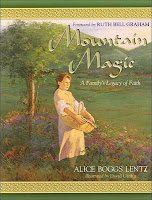
Having computers and other gadgets in a class is great. But, does it increase student learning? According to many, the only reason schools can justify any expense on technology is if students achievement improves.
This list details many of the ways that technology is integrated into our daily classroom routine.
1. Students do daily online lessons on
Study Island. This is tied directly to the curriculum of the state of Ohio.
2. Study Island
Student of the Day is awarded to recognize students with excellent performance.
3. Lessons on
Ohio Department of Education academic indicators are viewed by the class using the DLP projector, and then sample Study Island questions are answered.
4. Students journal about their SSR book on their Blogs.
5. Students log their reading book titles, times, and pages on their
Book Journal to keep accurate records, and to allow easy access for teacher evaluation.
6. Grades are kept on at
Engrade, which allows parents and students to always know their grades.
7. The message feature of
Engrade allows students and parents to contact the teacher with questions regarding a grade
8. Every student has a computer at their desktop with Internet access which can be used to research any time questions come up, and for informational reports.
9.
BrainPop videos are shown to assist visual learners understand main concepts.
10.
The Reading Workshop blog is used for information and communication between students, parents, and the teacher.
11.
Class notes are kept the blog so students can access them at any time, even when absent from school.
12.
Words that Count (spelling words) with example sentences are online so students can access them from at home when doing homework, and in the class whenever they are writing.
13.
ATandT Labs Text to Speech is used by students with reading difficulties to read aloud questions, or parts of passages with difficult text. Students also use it as a revision tool when writing by listening to their essay to be sure it sounds right.
14. A
discussion board is used for students to write about character elements in the SSR books they are reading.
15. Homework is listed daily on the
blog so parents always know what has been assigned and when it is due.
16. Online editing tools like
Answers.com and
Ask.com are used daily to assist with writing corrections.
17. A storage server is used so students can access their files anywhere in the school.
18. The doc camera and projector are used to show real-time examples of students work to help demonstrate teaching points.
19.
Open Office software is used for students to do word processing on writing projects.
20. The networked laser printer is used for students to print out their written work, revise and edit, and then print a final copy.
21.
Students sing, reading lyrics projected on the wall, to music from the computer. This builds fluency and vocabulary is taught also.
22. Students create presentation projects combining the use of many of the tools already listed.
Some of the skills learned are measurable by a mandated test, but not all. In Reading Workshop, students learn to use technology as a tool. Also, they learn technology skills that will help them throughout their life. To me, this makes it all worthwhile!
 Welcome to students attending Ball State University in Dr. Ford's class for reading educators. It is gratifying to see that college professors are interested in how blogs are being used in education and providing resources to use to compare with students' ideas on reading workshop.
Welcome to students attending Ball State University in Dr. Ford's class for reading educators. It is gratifying to see that college professors are interested in how blogs are being used in education and providing resources to use to compare with students' ideas on reading workshop.



















